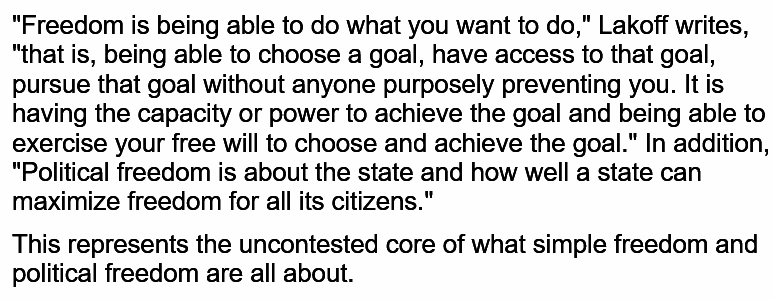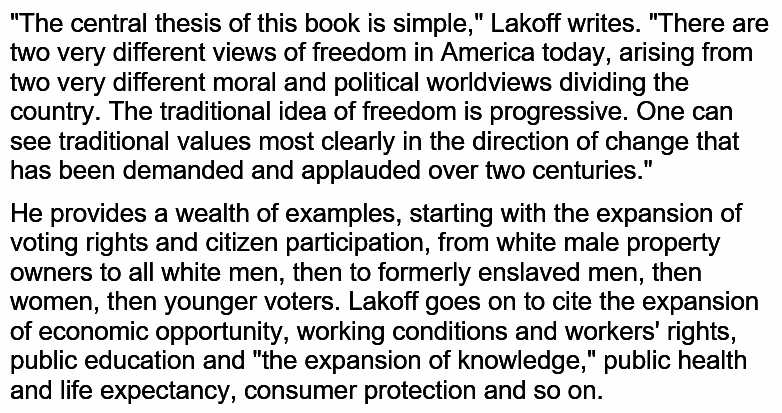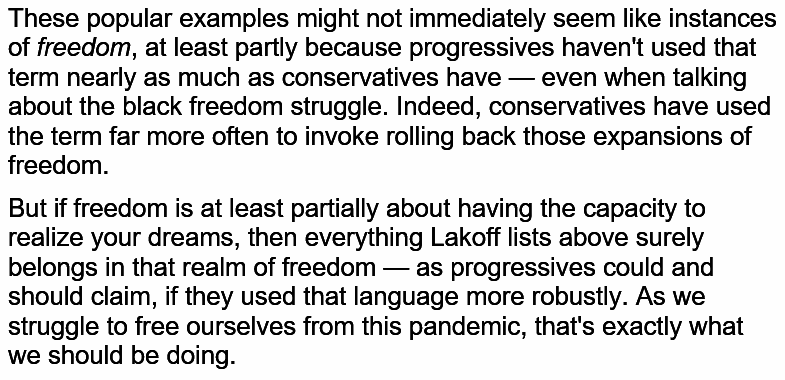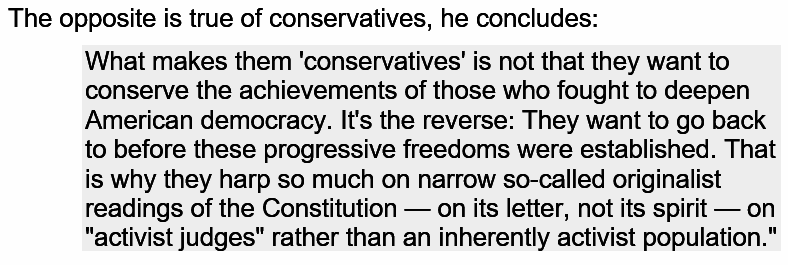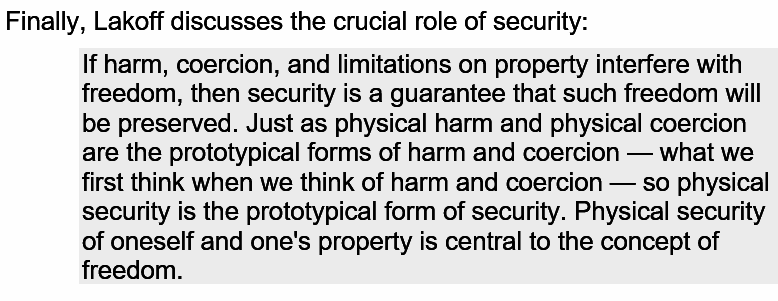When @Anandwrites criticized our obsession with freedom, he sparked a knee-jerk response. But "freedom" is an essentially contested concept. It means very different things to the slaveholder & the slave—and obsession is not understanding: 1/14 https://www.salon.com/2020/05/23/reclaiming-freedom-in-the-age-of-coronavirus-dont-allow-trump-and-the-right-to-claim-it/">https://www.salon.com/2020/05/2...
In "Whose Freedom?"
https://bookshop.org/a/2464/9780312426477
https://bookshop.org/a/2464/97... href="https://twitter.com/GeorgeLakoff">@GeorgeLakoff explains that freedom is an "essentially contested concept" as first described in an essay by W.B. Gallie.
https://www.jstor.org/stable/pdf/4544562.pdf?seq=1
2/14">https://www.jstor.org/stable/pd...
https://bookshop.org/a/2464/9780312426477
https://www.jstor.org/stable/pdf/4544562.pdf?seq=1
2/14">https://www.jstor.org/stable/pd...
But "freedom" has an uncontested core, @GeorgeLakoff explains. It& #39;s metaphorically grounded in our physical experience of bodily movement: 3/14
And that translates into a common metaphorical understanding of free movement—as in "the pursuit of happiness": 4/14
The traditional American understanding of freedom is progressive, @GeorgeLakoff argues: 5/14
Much of what @GeorgeLakoff describes might not register as "freedom," partly because progressives haven& #39;t used the term robustly. But if freedom is about being able to realize your dreams, we certainly *should* be using it much more: 6/14
"Progressive freedom is dynamic freedom," @GeorgeLakoff writes: 7/14
Underlying their differences are competing worldviews, rooted in parenting styles, which @GeorgeLakoff first explored in *Moral Politics*: 9/14 https://bookshop.org/a/2464/9780226411293">https://bookshop.org/a/2464/97...
The progressive "nurturant parent" style is actually *better* at producing the kind of autonomous moral agents that the conservative "strict father" style is *supposed* to produce: 10/
. @GeorgeLakoff discusses threats to freedom in 3 forms that I discuss (harm, coercion, or limitations on property), each *also* a contested concept, which leads to the role of *security* (as in "securing liberty"): 11/14
Which is why the threats @Anandwrites cited are *threats to our freedom*: 13/14
These are just highlights. Read the whole story here:
14/14 https://www.salon.com/2020/05/23/reclaiming-freedom-in-the-age-of-coronavirus-dont-allow-trump-and-the-right-to-claim-it/">https://www.salon.com/2020/05/2...
14/14 https://www.salon.com/2020/05/23/reclaiming-freedom-in-the-age-of-coronavirus-dont-allow-trump-and-the-right-to-claim-it/">https://www.salon.com/2020/05/2...

 Read on Twitter
Read on Twitter
